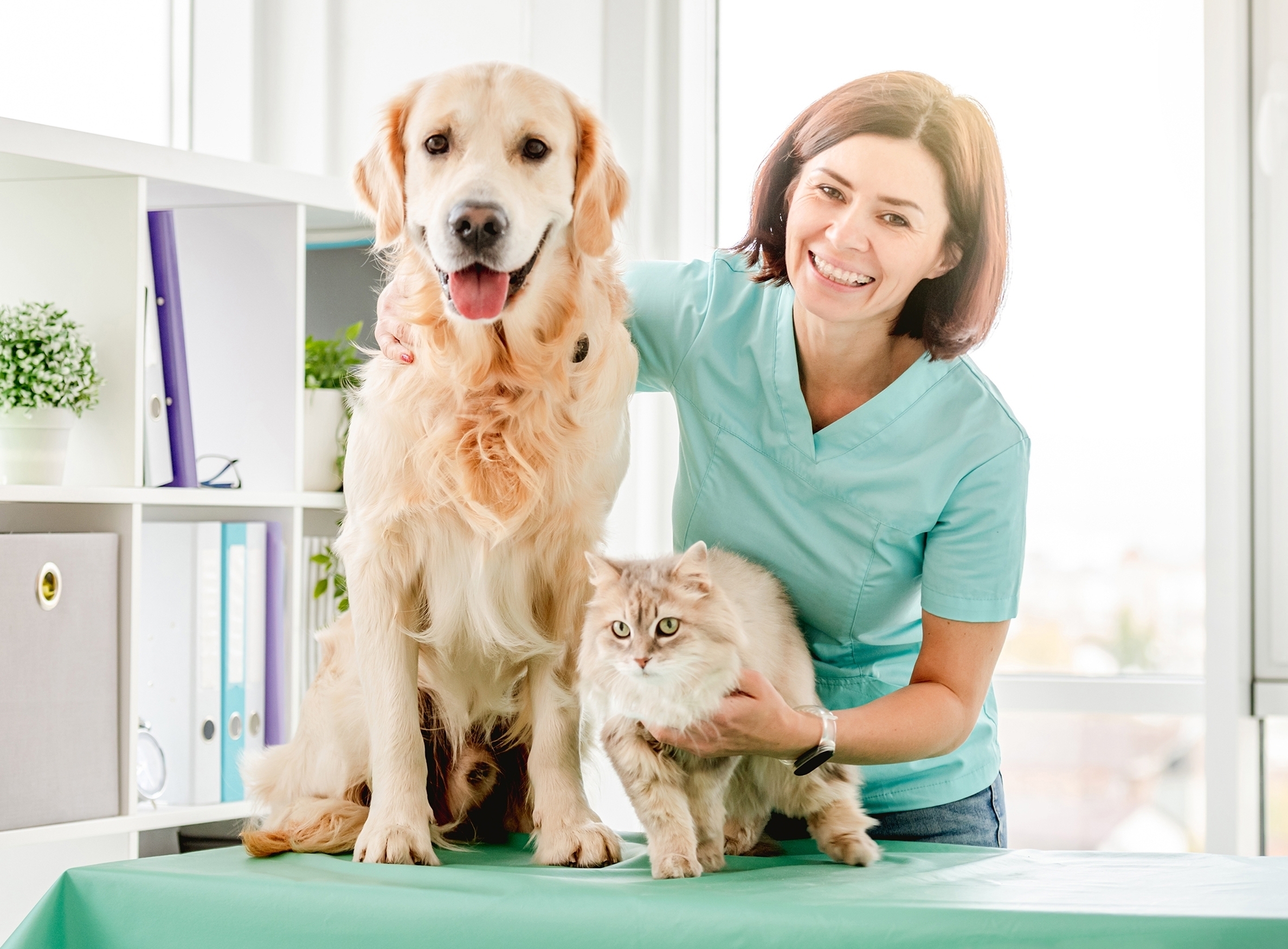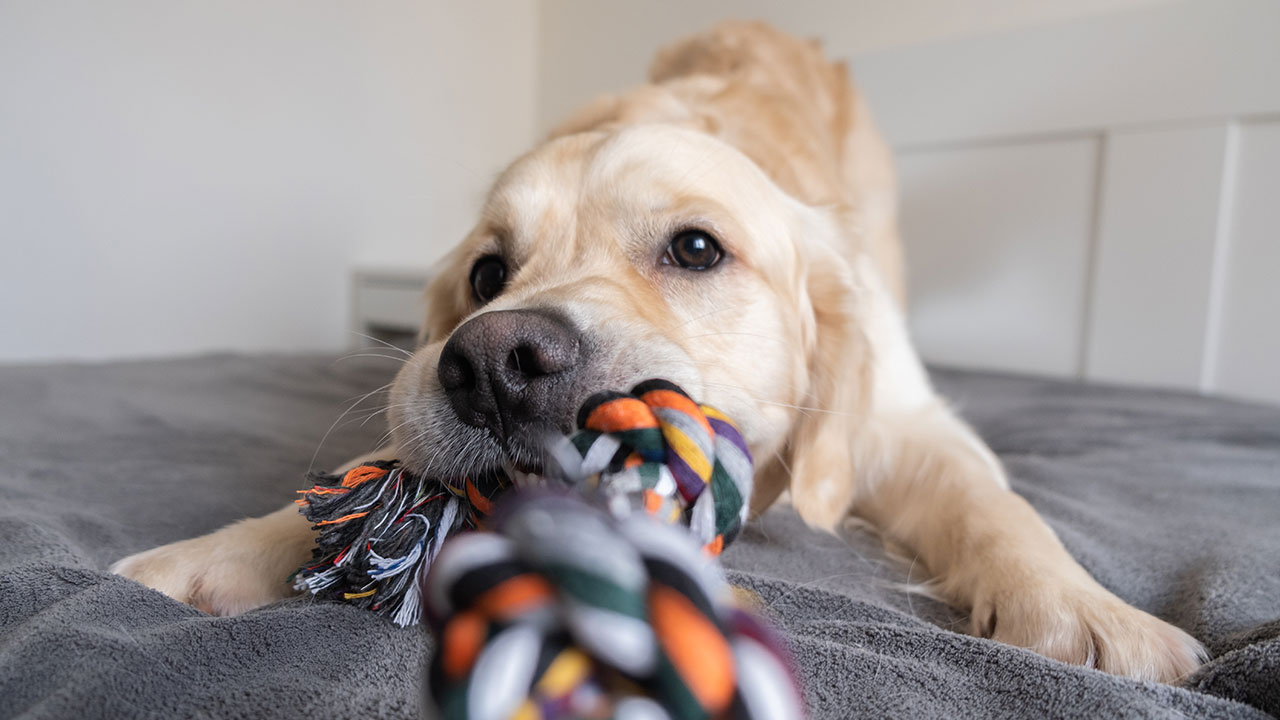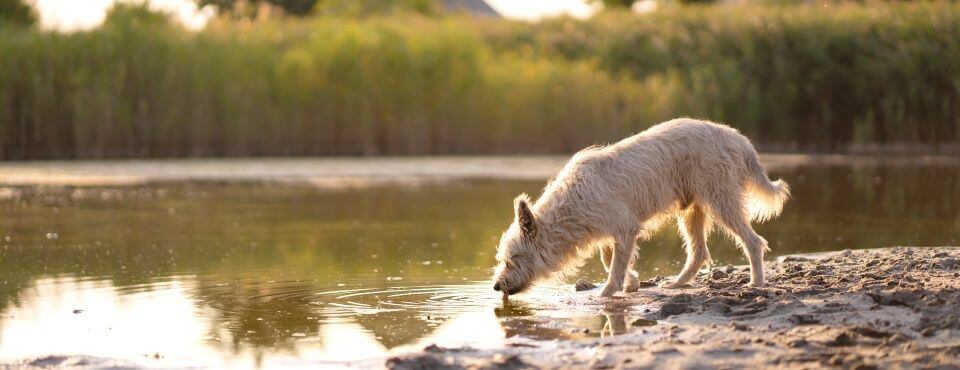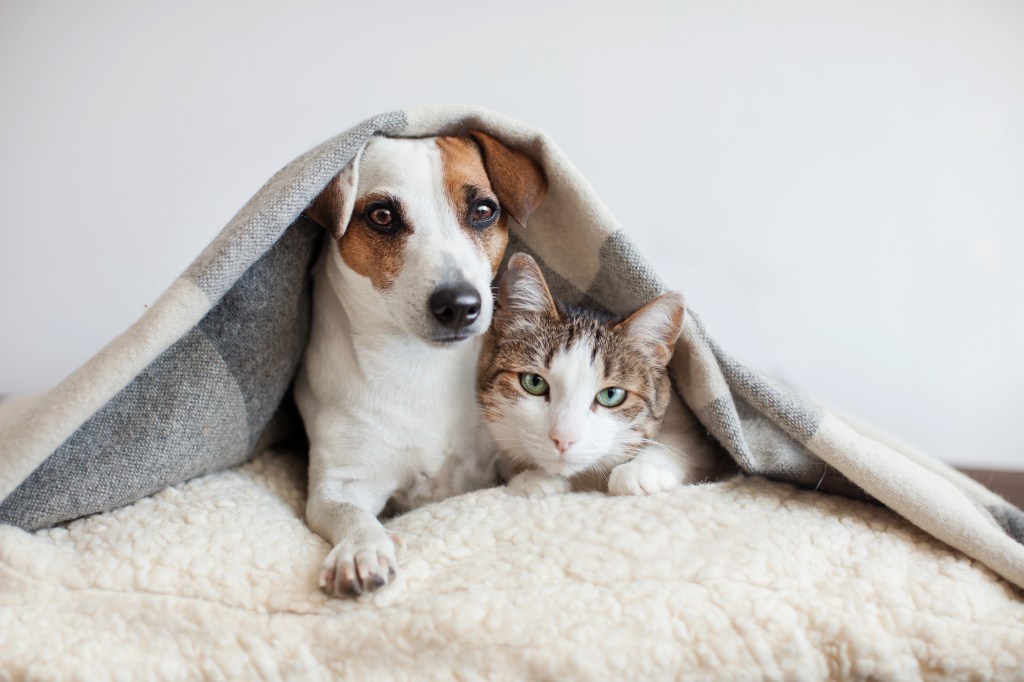Bringing home a new dog is an exciting time! You choose the most nutritious food, buy some fun toys, schedule your first vet visit, and make sure your new buddy is up to date on vaccinations. Before you do all those things, it’s just as important to address the safety issues in and around your home. Whether you’re adopting a puppy or a slightly older dog, you want to know that your dog is as safe as possible in your house throughout his or her lifetime.
Here are some things to consider as you prepare your home for your new companion:
KITCHEN
Some human foods such as chocolate, coffee and onions can be toxic to dogs. It’s important to make sure food is properly stored, the garbage can is securely covered, and that cleaning products are safely out of your pup’s reach.
LIVING & FAMILY ROOM
It’s nice to cuddle on the couch with your furry friend, but it’s also wise to remember that a puppy prone to chewing can easily damage that same couch! It’s also important to keep electrical cords tucked away and make sure you have a screen in front of your fireplace. If you have any house plants, keep in mind that some common household plants can be poisonous to your dog.
BATHROOM
Dogs are notorious for drinking toilet water, shredding toilet paper rolls and digging through garbage cans left open in the bathroom. While these adventures seem relatively minor, there are more serious hazards in the bathroom that require attention such as medicines, household cleaners, razors, drain cleaners and possibly even potpourri.
BEDROOM
Like any other room in the house, the bedroom can contain hazards for your dog. These include exposed electrical wires, curtain cords, and medicines. Be sure that small items like coins and jewellery are also put away, as these pose choking risks. This is also a good place to remember to keep windows closed to avoid an escape or accidental fall.
GARAGE
This is an area that contains a lot of potential dangers for your dog such as pesticides and rodent bait – both of which can be fatal if consumed.
YARD
There are also potential risks outdoors for your dog which you can contain with a few measures. Fencing the yard, if possible, will keep your dog from escaping. You should also put a fence around in-ground pools as these are a big hazard for puppies. Remove toxic plants from your yard and keep the lawn trimmed and brush under control. Ticks are more likely to be found waiting for your dog in taller grass. You should also be mindful of compost piles, mulches and fertilisers, all of which can cause problems for your pup.
YOUR AGEING DOG
As your dog ages, he or she might not be as active, and may not need the same kind of oversight around the house. Nonetheless, it’s important to remember that dogs experience the same ageing health issues that humans do, so you will want to think about your dog’s changing needs. Dogs are considered senior when their physical capabilities begin to gradually decline. However, there are ways to keep your dog healthy into their senior years and there are different ways you can dog-proof your house to make things more comfortable and safer for your furry friend.
MOVEMENT
Ageing bones and joint pain may make it harder for your furry companion to get up stairs or hop on the sofa. If you live in a two-story house, place everything your dog needs such as food, water bowls and toys, on the ground floor where they can be reached easily. You can also purchase (or make yourself!) a ramp to help your dog get up and down porch steps so that getting to and from the yard is a breeze. And while he or she may be ageing, your buddy will still want to cuddle with you. If it seems that your dog can’t get up on the sofa, lend a helping hand or provide a small stool as an intermediate step. Just remember, you will probably have to help your dog back down.
VISION
Failing vision may also be an issue for your ageing dog. There are ways you can help him or her continue to navigate around your house effectively by not making changes to the floor layout, using small bells around the house, or by placing night-lights around your house, especially in dark hallways.
AVOID THE TAIL
Your dog may become a little more careless when wagging his or her tail and sometimes, this can result in your precious items being swiped off tables and shattered. Avoid any accidental breakages by moving your breakables to where they can’t be damaged by an excited tail.
THE FLOOR
With ageing eyesight, your dog might accidentally think small items that fall to the floor, such as coins, buttons or small toys, are actually treats. Keep these and other items off the floor and out of his or her path so that your dog doesn’t stumble over them.
NAP TIME
Your older dog will take a lot of naps, but may lack the same kind of body fat that he once nap. Be sure to provide a cushion when lying down. You might consider purchasing a comfy dog bed to protect your dog’s bones from the hard floor. Place it in a quiet spot so he or she won’t be disturbed when resting.
DIET & EXERCISE
Like humans, when dogs age, their muscle mass and body weight begin to decline. Make sure your furry companion eats a diet that is high in protein, easily digestible and energy dense to help slow this decline. Exercise and play are still important for your dog’s health, from his or her muscles to the heart, even if your buddy moves a little slower.
HEALTH & PROTECTION
To help your dog get around a little easier, you can also consider aids like ramps, booties, harnesses for lifting them up, toe grips and adhesive pads.
Also, It is important to regularly visit the veterinary practitioner to maintain your dog’s vaccinations and check-up’s. A dog’s risk from parasites such as fleas and ticks is a reality at any age, and health related issues become more common with senior dogs.
With a little attention, your home is a safe haven for your dog, from the day you bring him or her home as a puppy and throughout life.
Looking for a Veterinary Practitioner?
Your veterinary practitioner plays a big role in your pet’s health. Enter your location information and get a list of vets near you.
FIND A VETERINARY PRACTITIONER NEAR ME





 Go To United States
Go To United States Austria
Austria Belgium
Belgium Czech Republic
Czech Republic Denmark
Denmark Europe
Europe Finland
Finland France
France Germany
Germany Greece
Greece Hungary
Hungary Ireland
Ireland Israel
Israel Italy
Italy Netherlands
Netherlands Norway
Norway Philippines
Philippines Poland
Poland Portugal
Portugal Romania
Romania Saudi Arabia
Saudi Arabia Slovakia
Slovakia South Africa
South Africa Spain
Spain Sweden
Sweden Switzerland
Switzerland Turkey
Turkey United Kingdom
United Kingdom